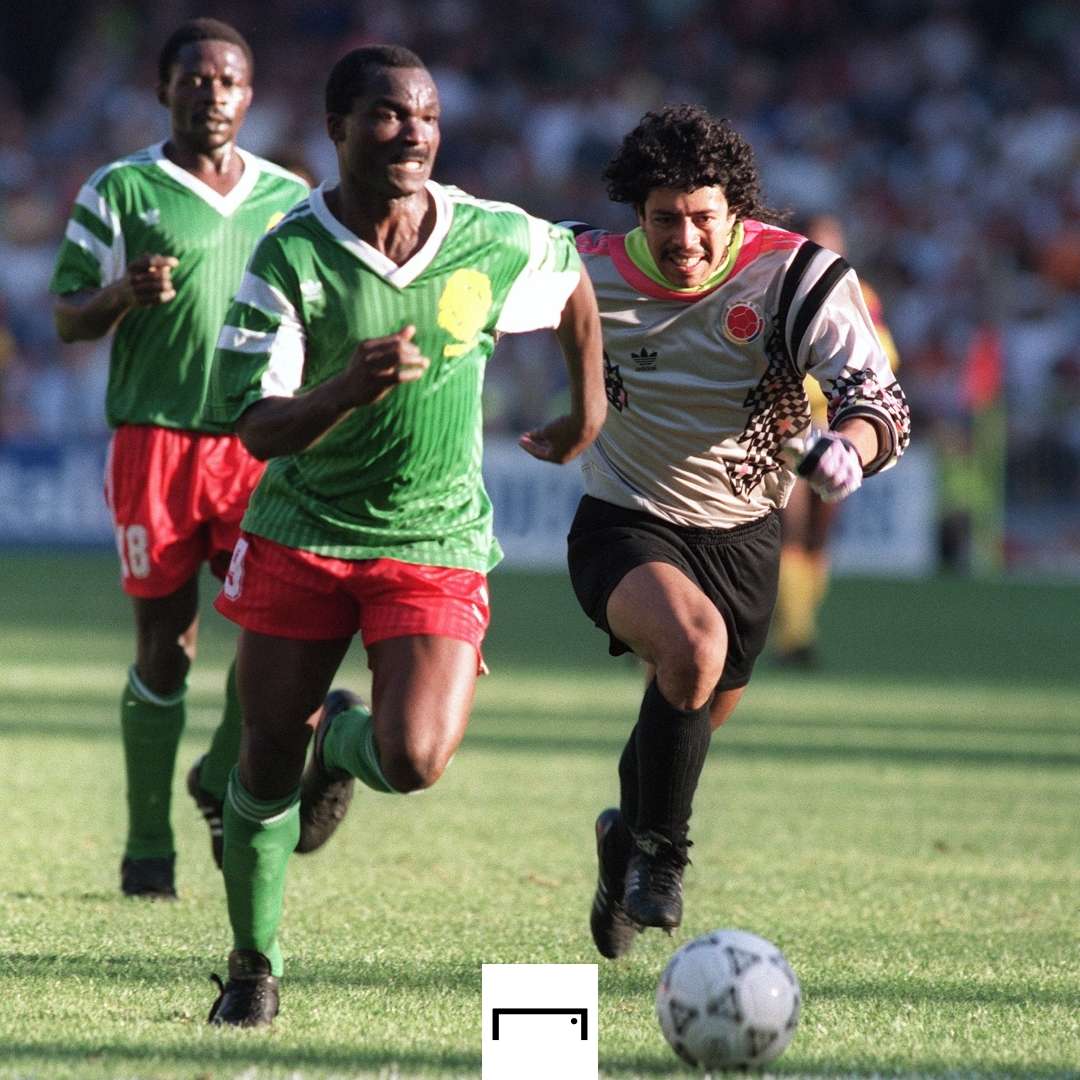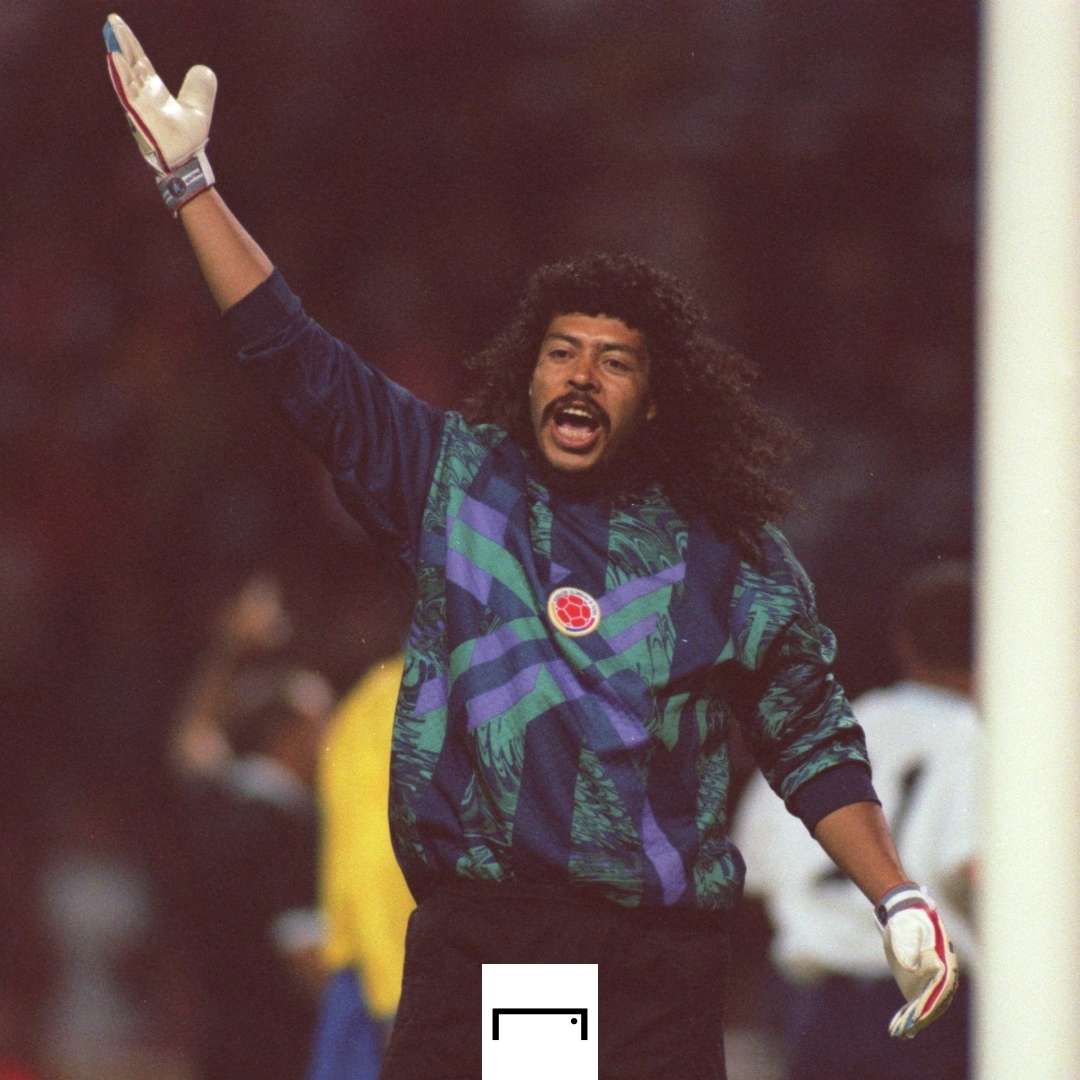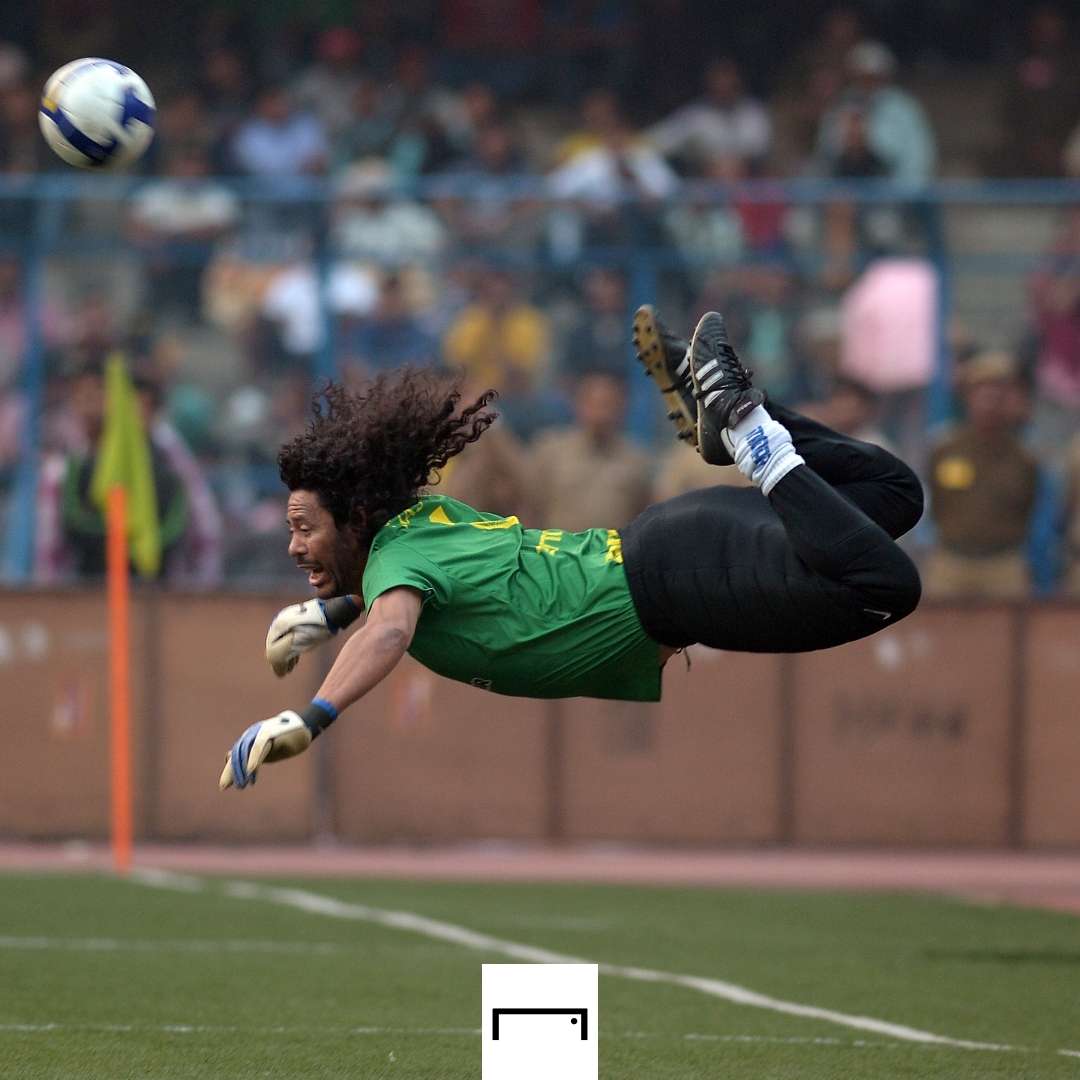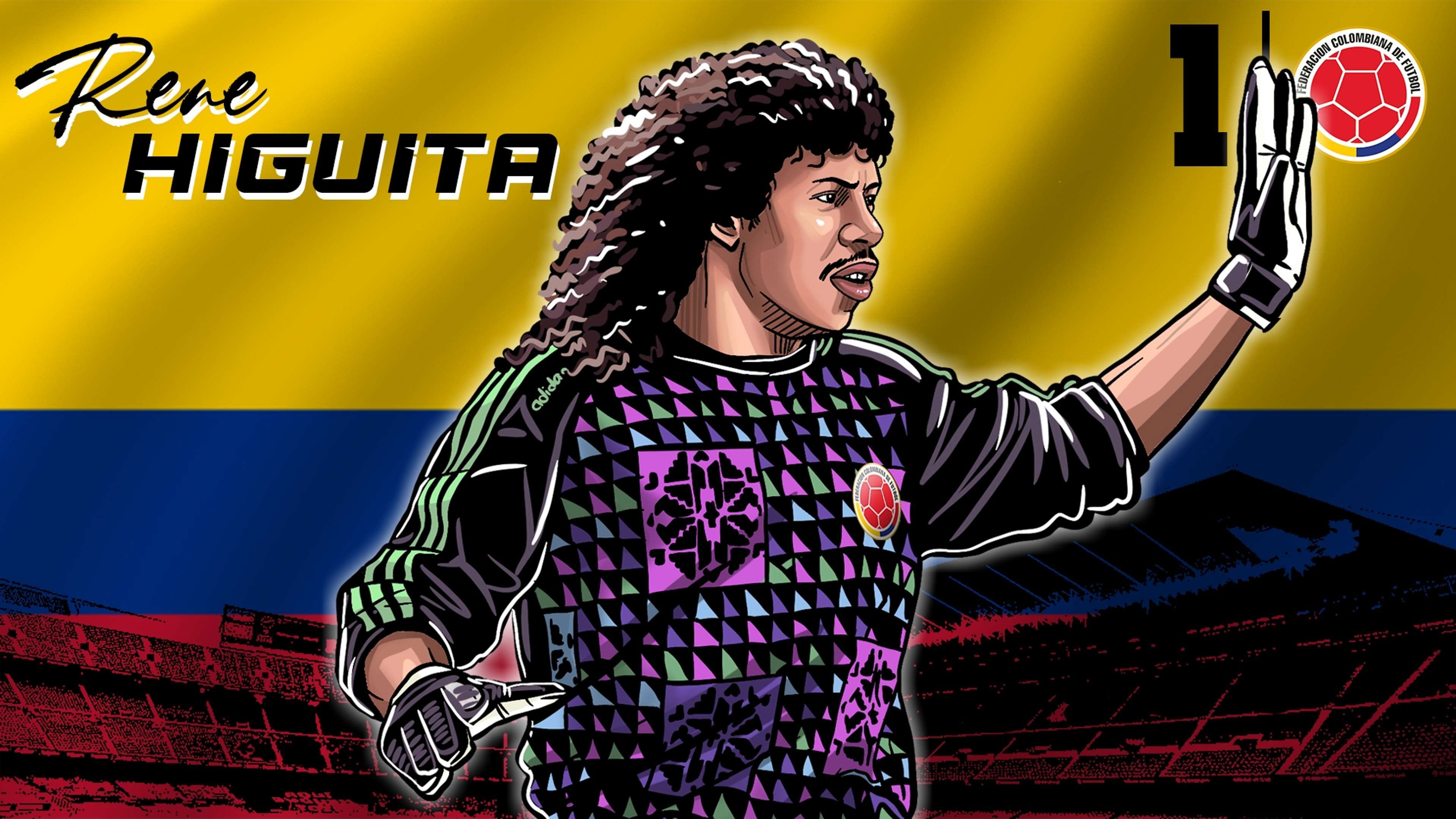Rene Higuita has been known as 'El Loco' for more than 30 years.
He insists he's not crazy, and never has been. And yet freely admits that his life reads like a surrealist novel. He even tried to convince Gabriel Garcia Marquez to write his biography.
Higuita's story really is quite something. Born into poverty in Medellin, he was raised by his mother after being disowned by his father, and was a childhood "acquaintance" of the notorious drug baron Pablo Escobar.
He was a prolific striker in his youth but became a goalkeeper after filling in as a replacement during a five-a-side game.
By the age of 20, he was representing Colombia at the Copa America, his fearlessness having struck a chord with Francisco Maturana, who gave him the nickname he still carries today.
"You are so crazy that you can also take the penalties," the coach once told Higuita.
There was a method to the madness, though. Higuita was genuinely ahead of his time. This was the era before the passback rule and yet here was a goalkeeper willing to come out of his area.
Johan Cruyff's Netherlands had, of course, introduced the world to the concept of 'Total Football', the idea that every player on the pitch could play different roles.
What made Higuita very different to Jan Jongbloed, though, was the fact that he was technically excellent.
"The Dutchman came out just to boot the ball into the stands," Maturana wrote ahead of the 1990 World Cup. "Higuita can do much more."
He was essentially the first true sweeper-keeper. "With Rene, we have 11 outfield players," Maturana pointed out.
 Getty/GOAL
Getty/GOALOf course, there was an inherent risk involved in allowing the goalkeeper to play so far forward, and it was exposed at Italia 90.
In the last-16 meeting with Cameroon, Higuita ventured upfield, as was his want, but made the mistake of trying to dribble past Roger Milla.
The striker pilfered possession and raced away to score the simplest of goals.
It proved decisive, too, with Cameroon winning 2-1 after extra time. Higuita was understandably devastated by what he described as "a mistake as big as a house".
Did it change, though? Did he stop taking risks? No chance. For better or for worse, Higuita remained an eccentric character, on and off the field.
Indeed, in the lead-up to the 1994 World Cup, he made an error of judgement which would see him end up in jail.
Higuita served as a go-between for Pablo Escobar and fellow drug trafficker Carlos Molina, delivering a ransom that resulted in the release of the latter's daughter.
The problem was that he was paid for his services and, under Colombian law, it is an offence to profit from a kidnapping.
"I acted for humanitarian reasons," Higuita said by way of defence. "If I was ever needed again to help free someone, I'd do it without hesitating. I'm a footballer, I didn't know anything about kidnapping laws."
Higuita was eventually released without charge, but only after seven months, during which time he had even gone on a two-week hunger strike in protest at his detainment.
So, while he was out in time for USA 94, he was in no fit state to play. He was a big loss.
 Getty/GOAL
Getty/GOALColombia had arrived in America as one of the favourites, having routed Argentina 5-0 in the qualifiers, but suffered a shock first-round humiliation.
The feeling was that his inspirational leadership was missed as much as his shot-stopping, as a calamitous campaign played out amidst death threats was quickly followed by tragedy, with the fatal shooting of defender Andres Escobar just days after the team had returned home.
Maturana had always maintained that Higuita's bravery on the ball put others at ease, showing his team-mates that if he could play in such an apparently care-free manner, so could they.
Of course, this daring approach was best exemplified by the 'Scorpion kick', which Higuita debuted for the world in a friendly against England in 1995, shortly after his return to the national team.
Jamie Redknapp swung over a badly mishit, instantly forgettable cross that Higuita turned into something iconic, with the goalkeeper leaping forward head-first while bending his legs back behind his body, before clearing the ball with his heels.
"Children have always been my inspiration," Higuita revealed to El Mundo. "I always saw them in the street or in a park trying out bicycle kicks, and I told them it would be good to do it in reverse...
"And that day in England, I was given the ball that I had been waiting for five years!"
 Getty/GOAL
Getty/GOALHiguita claimed that moment of magic put him on the map but, in truth, he was doing himself a disservice.
He already left an indelible mark on the game at Italia 90. His comfort on the ball had been a factor in the subsequent decision to abolish the passback.
The game's rule-makers were desperate to avoid a repeat of the dour, defensive football which had plagued the tournament and their thinking was, 'If Higuita could use his feet to such good effect, why couldn't everyone else?'
Indeed, it's worth remembering that he had played a pivotal role in Colombia's run to the knockout stage, and his sweeper-keeper role paved the way for others.
This, after all, was a true pioneer who ended a remarkable career with 41 goals to his name.
He was also a fine shot-stopper, though. He saved a remarkable four penalties (and scored one himself obviously) during Atletico Nacional's shootout success over Olimpia in the 1989 Copa Libertadores final.
So, was El Loco really out of his mind? Or just ahead of his time? Perhaps a bit of both.
